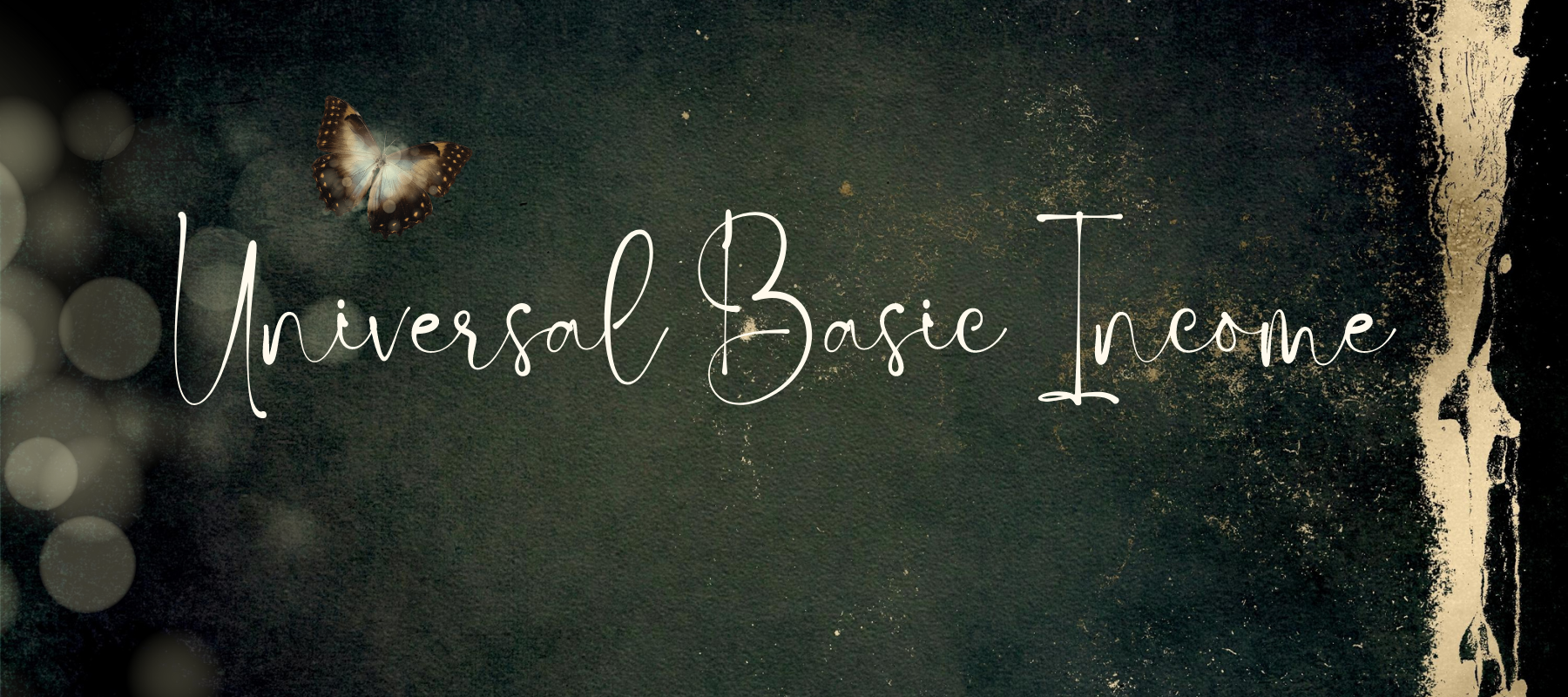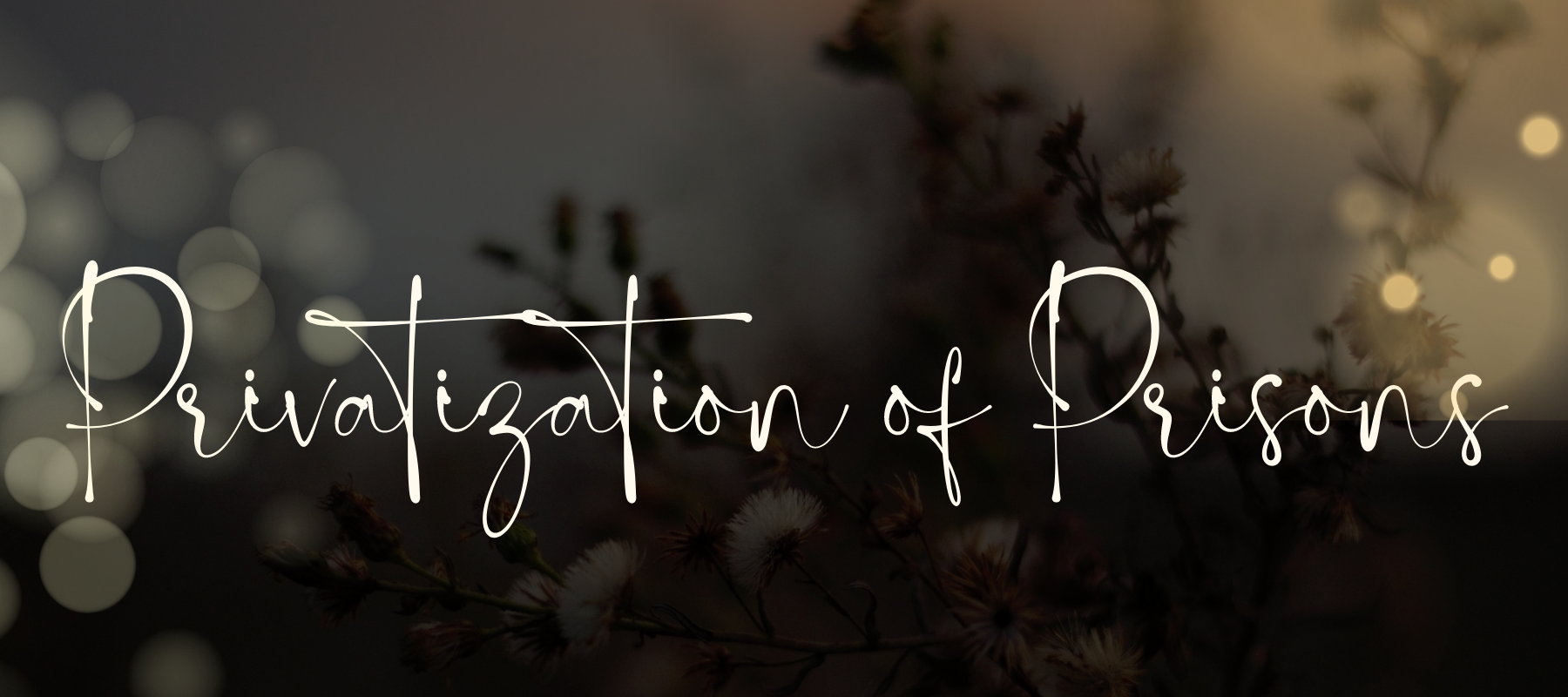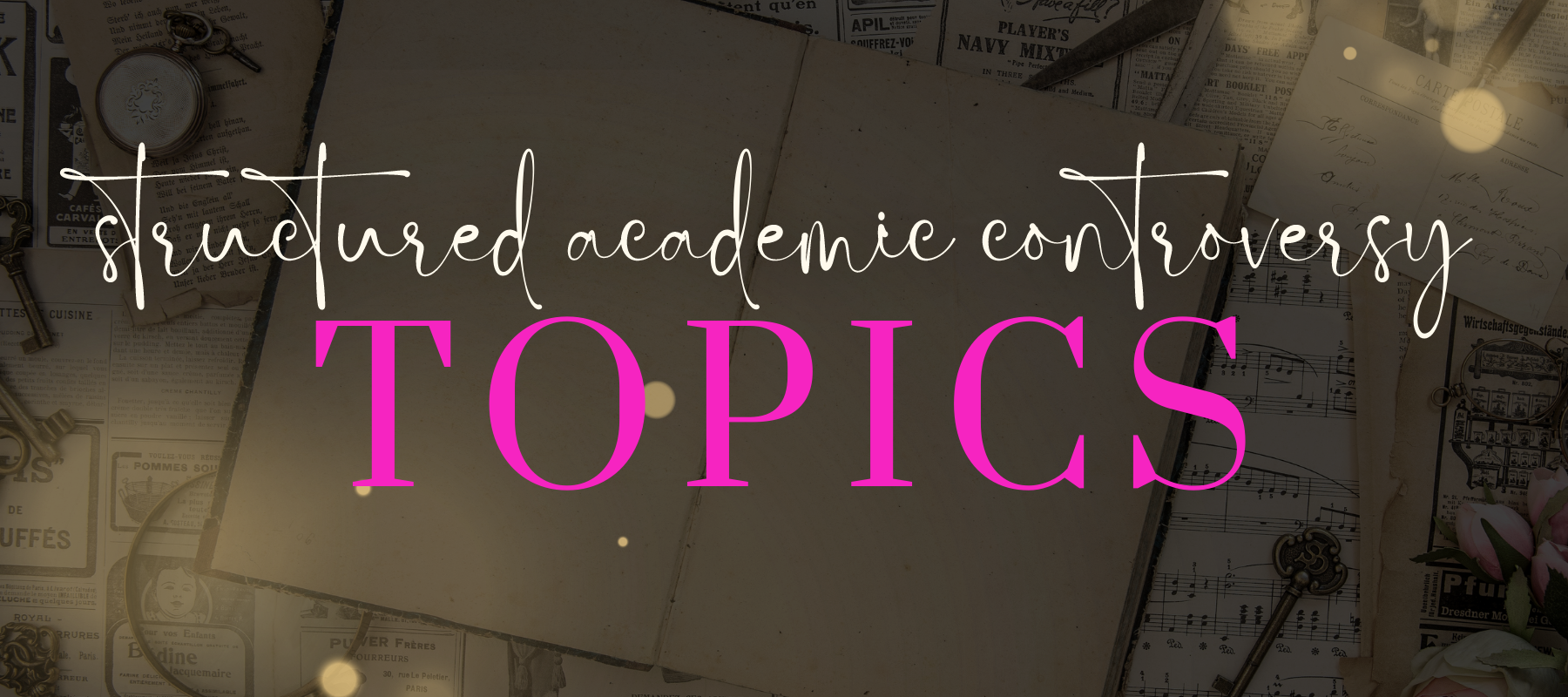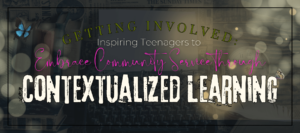These seven structured academic controversy topics are based on popular and ongoing debate subjects shaping society today. Fueled by conflicting perspectives and deeply held convictions, these debate subjects provide students the opportunity to find their place in the heart of contemporary discourse. Within the realm of academic discourse, structured academic controversies offer a platform for rigorous examination and analysis of multifaceted issues. They allow us to delve into the historical context, dissect the intricate layers of diverse opinions, and unravel the complex tapestry that forms the foundation of contemporary debates. These structured academic controversies provide us with a unique opportunity to explore the past, understand the present, and shape the future.
One of the biggest challenges we face as teachers when trying to promote national unity at the individual level in our classrooms is the increasing political polarization lurking within our society- On the one hand, educators have a responsibility to foster a sense of community and shared identity among our students, while on the other hand, we must also respect the rights of students to dissent and to hold different opinions and beliefs. However these two goals are not necessarily mutually exclusive. In fact, I believe they can complement each other.
One of the most powerful ways in which we as educators can promote both unity and dissent is by creating opportunities for students to engage in civil discourse.
This means creating a safe and respectful learning environment in which students can express their views, listen to others, and engage in meaningful dialogue. In the interest of preserving and promoting the skills needed for a functioning democracy, I really cannot emphasize the importance of teaching students the skills of civil discourse enough, such as active listening, respectful disagreement, and the ability to identify common ground.
We are uniquely positioned as educators to encourage civil discourse in the classroom by using a variety of pedagogical strategies, such as Socratic seminars, debates, and role-playing activities, yes, Structured Academic Controversies.

Structured Academic Controversy Topics: Universal Basic Income
The idea of a universal basic income has been around for centuries, with early proponents including philosophers like Thomas Paine and Martin Luther King Jr. However, the current debate surrounding universal basic income has been largely driven by the rapid technological advancements of recent decades, particularly the rise of automation and artificial intelligence. Supporters argue that it would provide a safety net for those in need and stimulate the economy by allowing individuals to invest in education, start businesses, or take risks without the fear of financial ruin. They also argue that it would reduce the burden on welfare systems and alleviate social inequality.
On the other hand, critics argue that UBI is expensive and could lead to disincentives to work, as individuals may choose to rely on the income provided instead of seeking employment. Additionally, there are concerns that it would lead to inflation and increase the tax burden on the working population. Another aspect of the debate centers around the potential impact of UBI on different groups, including low-income earners, the elderly, and those with disabilities. Some argue that UBI would disproportionately benefit those who are already well-off, while others suggest that it would provide much-needed support to vulnerable populations.

Structured Academic Controversy Topics: Space Colonization
The controversy surrounding space colonization is important because it raises ethical and practical questions about the future of humanity. If successful, space colonization could provide a solution to the growing population and resource depletion problems on Earth, as well as ensure the survival of our species in the face of natural disasters or catastrophic events on Earth. However, it also presents a number of ethical and environmental challenges that must be considered, for example, some argue that the resources required to colonize other planets could be better used to address issues such as poverty, inequality, and climate change on Earth.
Second, space colonization has significant economic implications. The cost of space exploration and colonization is significant, and it is important to consider whether the potential benefits outweigh the costs. Additionally, the economic benefits of space colonization could be significant, including the potential for new markets and industries.
Finally, the controversy surrounding space colonization reflects broader debates about the role of technology and its impact on society. As technology continues to advance, it is important to consider the ethical and societal implications of new technologies, including those related to space exploration and colonization.

Structured Academic Controversy Topics: Prison Privatization
The issue of privatization of federal prisons gained particular attention in the early 2010s, when the Obama administration announced plans to phase out the use of private prisons for federal inmates. However, the Trump administration reversed this policy, and private prisons continued to operate at the federal level. Critics of prison privatization argue that it is a continuation of the historical exploitation of prisoners for profit. They also argue that it perpetuates systemic inequalities, as private prisons tend to be located in rural areas with high rates of poverty and unemployment, leading to the creation of a prison-industrial complex that disproportionately affects people of color and low-income communities.
The controversy surrounding the privatization of federal prisons is deeply rooted in the history of slavery and the exploitation of prisoners for profit. Supporters argue that it can save money and improve efficiency, opponents argue that it perpetuates deeply ingrained systemic racism and prioritizes profits over rehabilitation and public safety.
Arguments in Favor
One of the most significant benefits of private prisons is cost-effectiveness. Private prisons are often able to operate at a lower cost than state-run facilities because they are not subject to the same regulations and requirements. Private prisons have more flexibility in staffing and management, and they are often able to hire staff at a lower wage than state-run prisons. This translates to significant cost savings for the government, which is especially important in today’s economy.
Another benefit of private prisons is that they can help alleviate overcrowding in state-run facilities. Overcrowding is a serious issue in many state-run prisons, leading to unsafe conditions for both inmates and staff. Private prisons can take on some of the inmates, helping to reduce overcrowding in state-run facilities. This can also help reduce the amount of time that inmates spend in prison, which can be beneficial for their rehabilitation.
Private prisons also have the ability to specialize in certain types of inmates. For example, some private prisons specialize in rehabilitating drug addicts, while others focus on inmates with mental health issues. This specialization can lead to better outcomes for the inmates, as they receive more targeted treatment and support.
Arguments Against
One of the most significant concerns with private prisons is the issue of accountability. Private prisons are not subject to the same level of oversight and regulation as state-run facilities, which can lead to issues with transparency and accountability. This lack of oversight can also lead to problems with the treatment of inmates, as private prisons may be more concerned with profits than with the well-being of the inmates.
Another concern with private prisons is the issue of quality. Private prisons may cut corners in order to save money, leading to substandard conditions and inadequate care for inmates. This can result in a cycle of recidivism, as inmates are released into society without the skills or resources to avoid returning to prison.
Finally, there is the concern that private prisons may lead to corruption. Private prisons are often owned by large corporations, which may have an interest in keeping inmates in their facilities for longer periods of time. This can lead to a conflict of interest, as the goals of the corporation may not align with the best interests of the inmates or society as a whole.

Structured Academic Controversy Topics: Cancel Culture
Call-out culture, as the name suggests, refers to the phenomenon where people publicly call out individuals or groups for problematic behavior, beliefs, or attitudes. This can be done through social media, protests, or public statements. The main aim of call-out culture is to hold people accountable for their actions and to raise awareness about problematic behavior. On the other hand, cancel culture involves boycotting or ostracizing individuals or groups who have been called out for their behavior. Cancel culture often involves social media campaigns aimed at boycotting a particular individual or group, leading to them losing their jobs, being shunned by society, or facing other forms of punishment.
Proponents of call-out and cancel culture argue that it is necessary to hold people accountable for their actions. They believe that this culture is a way to create a safer and more just society. By calling out problematic behavior, individuals can be held accountable for their actions, and it can deter others from engaging in similar behavior. Call-out culture can also raise awareness about important issues. By calling out problematic behavior or beliefs, individuals can bring attention to social injustices, promote equality, and advocate for marginalized groups. This can lead to positive changes in society, such as increased awareness and support for marginalized groups.
However, critics argue that call-out and cancel culture can also have negative consequences. For instance, some argue that it can create a culture of fear where individuals are afraid to express their opinions, for fear of being criticized or canceled. This can stifle free speech and harm democratic values. Additionally, cancel culture can lead to people being unfairly punished for their actions or beliefs. Some people argue that cancel culture is akin to online bullying, where individuals are attacked and ostracized without being given the opportunity to defend themselves. This can lead to a lack of empathy and understanding, which can further polarize society.
Furthermore, cancel culture can also be used as a tool for revenge, where individuals use it to settle personal vendettas or to advance their own agenda. This can be harmful, especially when it is used to silence individuals or groups with different views or beliefs. It is also worth noting that call-out and cancel culture can sometimes have unintended consequences. For example, a few years ago, a comedian made a joke that was considered racist by many people. As a result, he faced widespread criticism, and his shows were canceled. However, the comedian also faced personal attacks and received death threats, which was clearly not the intended consequence of the criticism. Such unintended consequences can sometimes have severe repercussions and must be considered when engaging in call-out or cancel culture.
Call-out and cancel culture can be both beneficial and harmful to society. While it can hold people accountable for their actions and raise awareness about important issues, it can also create a culture of fear, stifle free speech, and lead to unfair punishment.

Structured Academic Controversy Topics: Defund the Police
While there are multiple interpretations of “defund the police,” the basic definition is to move funding away from police departments and into community resources such as mental health experts, housing, and social workers. In the larger scope of the civil rights movement, some advocates would reallocate some police funding but keep police departments, others would combine defunding with other police reforms such as body cameras and bias training, and others see defunding as a small step toward ultimately abolishing police departments and the prison system entirely.
Proponents argue that it would promote social justice, reduce police brutality, and provide funding for other social services. On the other hand, opponents argue that defunding the police would result in increased crime rates and put public safety at risk.
Promoting Social Justice: Defunding the police can be a step towards promoting social justice in the United States. Many people believe that the police force has a history of discrimination and bias against minorities, particularly black people. According to a report by the National Bureau of Economic Research, Black Americans are three times more likely to be killed by police than white Americans. Defunding the police can help reduce the number of police officers in minority communities and redirect funds towards other social services, such as education and healthcare, that can help reduce crime rates.
Reducing Police Brutality: Another benefit of defunding the police is that it can help reduce police brutality. Many people believe that police officers are given too much power and that they are not held accountable for their actions. This has led to cases of police brutality, which have been widely reported in the media. Defunding the police can help reduce the number of police officers on the streets, which can reduce the likelihood of confrontations between the police and the public.
Funding Other Social Services: Defunding the police can also provide funding for other social services that can help reduce crime rates. Many experts argue that social services, such as education, healthcare, and housing, are essential in addressing the root causes of crime. By redirecting funds from the police towards these services, communities can create a more sustainable and equitable system that promotes public safety
Increased Crime Rates: One of the most significant drawbacks of defunding the police is that it may lead to increased crime rates. Many people argue that without the police force, there would be no one to maintain law and order, which could lead to chaos and anarchy. Additionally, the police force is responsible for investigating crimes and apprehending criminals. Without adequate funding, it may be challenging to maintain these essential services, which could result in more crimes going unsolved.
Public Safety at Risk: Defunding the police may also put public safety at risk. Many people argue that the police force is essential in protecting the public from violent criminals and keeping communities safe. Without adequate funding, it may be challenging to maintain the number of police officers needed to provide adequate protection. This could result in an increase in violent crimes, which could have severe consequences for public safety.
Lack of Alternative Solutions: Finally, opponents of defunding the police argue that there are no viable alternative solutions to the current system. While many people agree that the police force needs reform, they argue that defunding the police is not the answer. Instead, they argue that resources should be directed towards improving police training and accountability, increasing community policing, and addressing issues such as mental health and addiction.

Structured Academic Controversy Topics: Student Debt Elimination
The issue of student loan debt is a hot topic for pretty much everyone these days, with many individuals and organizations advocating for the elimination of this debt through various means such as forgiveness or bankruptcy.
Student loan debt can have a significant impact on a person’s financial future, often resulting in long-term financial burdens, and limiting their ability to pursue other goals such as purchasing a home or starting a business. This is an important controversy for high school students to understand as they begin to consider their options for higher education and their financial future.
On one hand, proponents of student loan forgiveness argue that it would help alleviate the financial burden that many people face, particularly those who have taken on significant debt to pursue higher education. They argue that this debt relief would also boost the economy by freeing up disposable income that could be used for other purposes.
On the other hand, critics of student loan forgiveness argue that it would be unfair to those who have already paid off their loans, and that it would encourage irresponsible borrowing and spending habits. They suggest that instead of forgiveness, bankruptcy should be an option for those who are unable to repay their loans, as it is with other types of debt.

Structured Academic Controversy Topics: Preserving Historic Monuments
Overall, the debate around the removal of historical monuments is complex and multifaceted. Supporters of removal argue that monuments can perpetuate a false narrative of history, reinforce inequalities, and be insensitive.
On the other hand, opponents argue that monuments are an important part of cultural heritage, can serve as educational tools, and that removing them can set a dangerous precedent. To fully understand the debate on removing historical monuments, it is important to consider the historical context and the perspectives of various stakeholders.
It is also important to recognize that the debate is not solely about monuments, but about larger issues of power, privilege, and historical memory.













